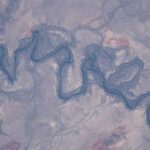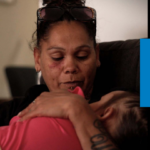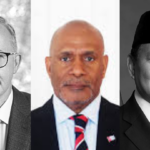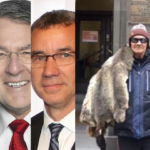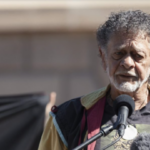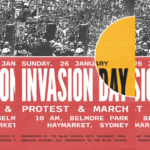Yoorook Justice Commission Confirms Genocide Was Committed to Establish Victoria
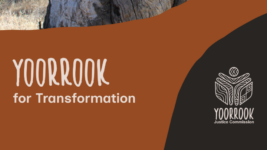
Established in 2021, the Yoorook Justice Commission tabled its gigantic final report in Victorian parliament on 1 July 2025. The Yoorook commission examined the colonisation of “the lands now known as Victoria” and found this involved the British violently invading “Gunditjmara Country in 1834”, before moving on to Kulin Country the following year and then beyond.
Indeed, the independent inquiry has confirmed that genocide has taken place.
“From 1834, mass killings, disease, sexual violence, exclusion, linguicide, cultural erasure, environmental degradation, child removal, absorption and assimilation combined to bring about the near-complete physical destruction of First Peoples in Victoria,” the Yoorook report sets out.
This process was found to be “a coordinated plan of different actions aimed at the destruction of the essential foundations of the life of national groups” perpetrated by the British, and the “incursions were illegal under colonial laws at the time”. The reason such violence was unleashed upon the First Peoples of the region was “to steal Country to generate wealth”.
The Yoorook Justice Commission was established under the Inquiries Act 2014 (VIC). It operated as a Royal Commission, bringing powers to compel individuals and organisations to testify and provide evidence. And led by First Peoples and independent of government, the investigation examined the “historical and ongoing systemic injustice against First Peoples in Victoria”.
Yoorook has too delivered 100 “urgent recommendations” relating to establishing a treaty-process, reforms on self-determination and accountability, and a range of charges relating to specific issues, such as land, education and health, along with redress, and it expects that the Victorian government immediately commences work on implementing them within the next 24 months.
“This was genocide”
Not only has Yoorook found that the gravest of all crimes, that of genocide, was perpetrated on “the lands now known as Victoria”, along with countless accompanying crimes against humanity, but the commissioners “heard that injustices towards First Peoples are not just a thing of the past, but continue to operate as an ongoing, everyday reality”.
Victorian premier Jacinta Allan referred to continuation of injustices of the past into the present as an “unbroken line”, while the Victorian state also conceded during the investigation that First Peoples’ “sovereignty was never ceded”.
The investigation received over 1,300 submissions. It held over 27 public hearings, which heard testimony from at least 134 individuals, in relation to issues, such as “land injustice, housing and homelessness, health, education and economic prosperity”. The commissioners further sought and received over 10,000 documents and held 37 round tables and site visits.
In conducting these inquiries, the commissioners found that in the name of land acquisition, 50 reported massacres occurred in the region between 1831 and 1854, with 978 First Peoples killed. Yoorook also outlines that “these actions were enabled and justified by racist ideology with the explicit and complicit support of politicians, colonial authorities and the state.”
By 1845, “fewer than 240 wealthy Europeans held all the pastoral licences then issued in Victoria”, which set their families up to wield political and economic power in that state for generations to come. And besides the heinous killing, the colonisers further forced First Peoples “onto missions and reserves”, where the then occupied peoples had their lives completely controlled by the state.
This occupation included the mass removal of children from their families, and the forced suppression of cultural practices and spirituality, while the people who’d been living on the lands for over 60,000 years, were even prohibited from speaking their own languages. And as this was taking place, the colonisers were clearing, mining and developing, in a manner that destroyed the lands.
Ongoing injustices
Yoorook too makes certain that the lives of First Peoples today continue to be “profoundly shaped by the enduring impact of colonial invasion” and that contemporary government policies serve to exacerbate such harms, which means that successive Victorian governments continue to enact laws and engage in practices that are geared towards robbing First Peoples of their lands and waters.
“Systemic racism, as well as individual racist attitudes, lie at the heart of these injustices,” the report authors explain. “Systemic racism refers to laws, policies or practices that may, on their face appear neutral, but which in practice unfairly disadvantage certain racial groups and advantage others.” They add that throughout Victorian history false ideas about race have served and still serve to justify this.
This racism occurs across all Australian institutions, and continues to see First Peoples excluded from equitable access to health services, education and employment opportunities. The report found the Victorian education system fails First Peoples, while they “experience profound health injustice”, and they face housing insecurity that far exceeds that of the rest of the state’s population.
First Peoples have been cut out of wealth generating opportunities and from participating in economic life. The colonial systems in place were further found to “have long excluded First Peoples in Victoria from participating in the processes and institutions of government”, but despite this, First Peoples have a “long history of resistance and of directly engaging with political systems”.
“In the face of these injustices, First Peoples continue to resist state-inflicted inequality, institutional discrimination and dispossession that negatively impacts their lives and wellbeing,” the report states, and adds that it received evidence that First Peoples are currently revitalising culture and language, as well as creating their own structural and governance changes to forge their own futures.
The report underscores that “self-determination is critical to ending systemic injustice”. And what that means is the transference of “decision-making power, authority, control and resources to First Peoples on nation-based, collective, regional and statewide levels so that First Peoples can make decisions about the things that affect them”.
Continentwide implications
Independent Senator Lidia Thorpe said of Yoorook that its findings “apply to the whole country”. “Genocide has not just occurred in Victoria but has been perpetrated against all First Peoples of this continent”, and she added that it’s the responsibility of the federal government to “uphold international human rights obligations”, which includes preventing and punishing genocide.
The Gunnai, Gunditjmara and Djab Wurrung woman explained that all Australian governments are at pains to deny the truths that have been delivered by Yoorook, and she makes clear that not only has genocide occurred in Victoria and all other states and territories, but the “unbroken line” of injustices sees the crime of genocide continuing against the First Peoples to the present day.
“They are scared of what consequences it could bring to acknowledge genocide has and still continues,” the senator added in her statement following the report’s release, and she noted that while most international atrocity crimes, including genocide, do appear on the local law books, there is a mechanism in law called the attorney general’s fiat that blocks the ability to prosecute them.
“The formal recognition of genocide and our rights to treaty as independent nations, nation to nation, is powerful,” Thorpe made certain.
“Now the federal government must follow, accept this truth and facilitate a national response led and directed by First Peoples.”


